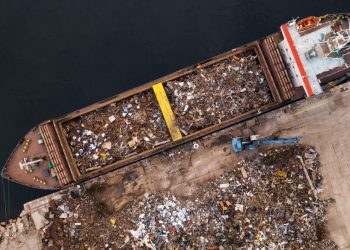Psychosocial risks are among the main challenges for occupational health and safety in the modern workplace and are linked to any factors that can cause physical or mental harm to employees, varying from work-related stress to workplace violence, including harassment. What is the main way forward for business leaders to ensure psychosocial risk management in a traditional and intense industry like shipping?
Psychosocial risk management is a process of managing the risks associated with psychological and social factors in the workplace. It involves identifying, assessing, and controlling the psychological and social risks that may affect employees’ health, safety, and wellbeing.
As implied, this process includes creating policies and procedures that are designed to protect employees from physical, emotional, and mental harm. It also involves providing support and resources to help employees cope with stress, reduce conflict, and increase job satisfaction.
Psychosocial risk factors in shipping
Psychosocial risk factors in the shipping industry can include long working hours and high levels of stress associated with the nature of the job, poor working conditions due to lack of monitoring onboard, lack of diversity, inadequate training, as well as isolation due to being away from home for long periods.
In addition, the lack of safety protocols and adherence to safety standards, as well as the insecurity driven by piracy and geopolitical tensions can lead to increased levels of stress for the crew members onboard.
Of course, employees ashore are also a major part of the shipping industry, often facing increased workloads and stressful working conditions in the fast-paced shipping environment.
Drivers of psychosocial risk management at work
1. Effective leadership: The key to successful organizations is the transition from conventional to transformational leadership that puts humans on top. A key driver to people’s wellness in this respect is leaders who understand the importance of psychosocial risk management and commit to taking action to protect employees’ mental health.
2. Employee engagement: Creating an environment of open communication and two-way dialogue between employees and managers can help make people an integral part of internal operations, thus being able to proactively identify potential risks and solutions with respect to people’s wellness within the organization. A culture of trust, respect and open communication between employees and management is the A and Z of psychologically safe workplaces.
3. Training and education: Educating both employees and managers on the signs and symptoms of mental health issues, as well as the importance of managing psychosocial risks, is essential for creating a supportive workplace. Investments on such training may include resources to develop strategies to identify and address psychosocial risks at work.
4. Establishing and implementing policies: Establishing policies and processes to identify, assess, and manage psychosocial risks is essential for creating a culture of wellbeing.
5. Evaluation and monitoring: Integrating a mental health policy is not enough to ensure people’s wellness. On the contrary, regularly monitoring and evaluating the effectiveness of psychosocial risk management measures is essential for ensuring that the organization is meeting its goals.
Barriers to psychosocial risk management at work
1. Lack of understanding: Many employers do not understand the importance of psychosocial risk management and how it can benefit the workplace. This is more regularly seen in small enterprises that do not have official, comprehensive plans in place for employees’ wellbeing.
2. Lack of resources: Many employers do not have the resources to invest in psychosocial risk management, such as hiring mental health professionals or providing training for employees.
3. Fear of stigma: Employees may be reluctant to discuss their mental health or take part in any measures put in place to safeguard their mental wellbeing. There may be a stigma attached to discussing mental health in the workplace and some employees may be afraid to speak up about any issues they are facing.
4. Short-term focus: Employers may have a short-term focus when it comes to psychosocial risk management, prioritizing immediate needs over long-term solutions. At the end of the day, every organization’s ultimate goal is to make profit and this is a very common trap that companies often find themselves in.
What should employers do to ensure psychosocial risk management at work?
- Develop a comprehensive psychosocial risk management plan. This should include understanding the psychosocial risks in the workplace, assessing the risks, and implementing strategies to manage them.
- Implement policies and procedures to ensure a safe and healthy work environment. This includes policies and procedures on bullying, harassment, and discrimination, as well as work-life balance and flexible working arrangements.
- Provide training and education to employees on psychosocial risks and how to address them in the workplace.
- Provide access to mental health support and services, such as Employee Assistance Programs (EAPs) or counseling services.
- Regularly monitor and review psychosocial risks in the workplace and address any issues promptly.
- Utilize employee surveys and feedback to identify potential psychosocial risks and gauge employee engagement.
- Invest in occupational health and safety initiatives that promote health and well-being. This could include ergonomic assessments, stress management programs, and health promotion activities.






























































